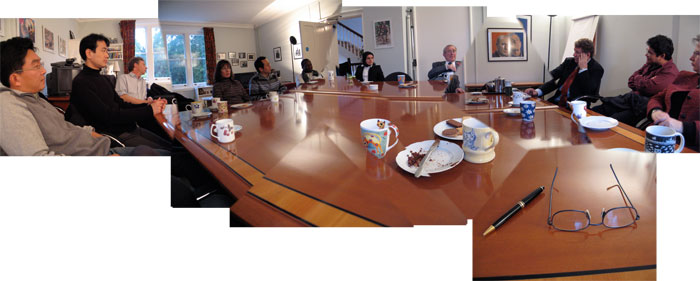… The sergeant went upstairs to tell his marines, just as he had informed them the day before that the Republican Party had lost control of the House of Representatives and that Congress was in the midst of sweeping change. Mr. Menti had told them that, too.
“Rumsfeld’s out,” he said to five marines sprawled with rifles on the cold floor.
Lance Cpl. James L. Davis Jr. looked up from his cigarette. “Who’s Rumsfeld?” he asked.
If history is any guide, many of the young men who endure the severest hardships and assume the greatest risks in the war in Iraq will become interested in politics and politicians later, when they are older and look back on their combat tours.
But not yet. Marine infantry units have traditionally been nonpolitical, to the point of stubbornly embracing a peculiar detachment from policy currents at home. It is a pillar of the corps’ martial culture: those with the most at stake are among the least involved in the decisions that send them where they go.
From the NYT via Truthdig.


